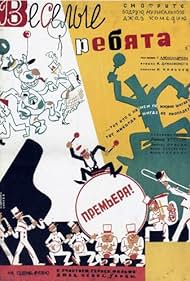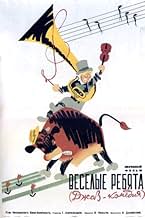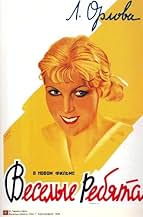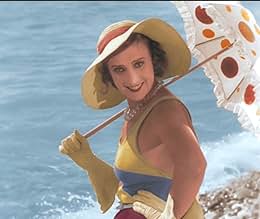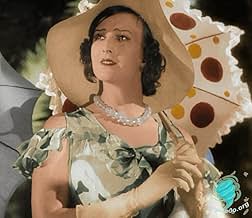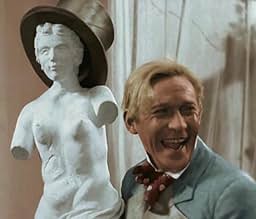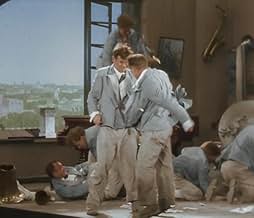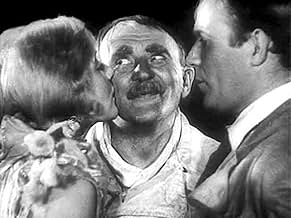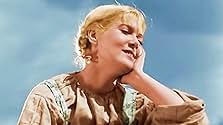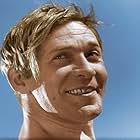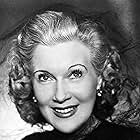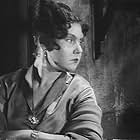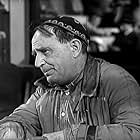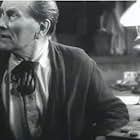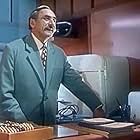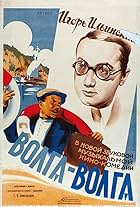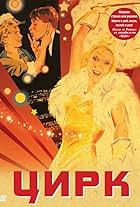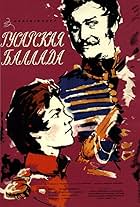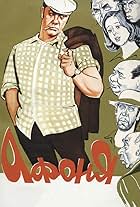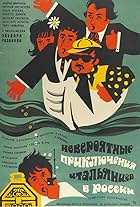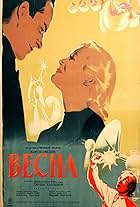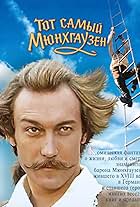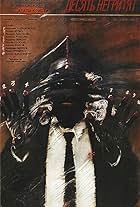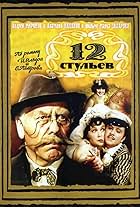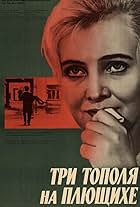IMDb RATING
6.9/10
1.1K
YOUR RATING
A musically talented shepherd gets his big chance when he is mistaken for a famous conductor.A musically talented shepherd gets his big chance when he is mistaken for a famous conductor.A musically talented shepherd gets his big chance when he is mistaken for a famous conductor.
- Awards
- 1 nomination
Elena Tyapkina
- Yelena's mother
- (as Ye. Tyapkina)
Fyodor Kurikhin
- Mortician
- (as F.N. Kurikhin)
Arnold Arnold
- Fraschini - the conductor from Paraguay
- (as G. Arnold)
Robert Erdman
- German music teacher
- (as R. Yerdman)
Emmanuil Geller
- Music-hall audience member
- (uncredited)
- Director
- Writers
- All cast & crew
- Production, box office & more at IMDbPro
Storyline
Did you know
- Crazy creditsThe animated credits begin with the names and faces of Charles Chaplin, Harold Lloyd and Buster Keaton, followed on the next title by the text "do not participate in this film". The letters are then mixed and reappear as "in this film participate", followed by the actual cast members. The credits also list "Marya Ivanovna" with a large question mark; the question mark turns into a cow, which then paints with her tail the title of the film (in the film, Marya Ivanovna happens to be the name of a lazy cow in the herd tended by the main character Kostya Potekhin).
- Alternate versionsIn 1958, director Grigoriy Aleksandrov made a re-dubbed version, pretending that the original soundtrack had been damaged. Leonid Utyosov's lines and songs were dubbed by Vladimir Troshin and a few lines and scenes were deleted because of censorship. The animated title credits were remade with some changes: for example, the words "Jazz comedy" above the main title of the film were removed; the animated cow was no more spitting as in the 1934 original.
- ConnectionsFeatured in Komediya davno minuvshikh dney (1980)
Featured review
This first Soviet musical comedy on film still shows signs of silent era mentality, mainly because the sound is so poorly coordinated with the picture, as if it were an afterthought, but also because the gags are predominantly visual. You'll wince at many of the shots too, especially those close-ups of the actors delivering each single line -- it's hard to be subtle when the camera's 18 inches from your face. Also obvious is the political subtext -- a jolly peasant demolishes the upper crust's airs and way of life. It's interesting that, in this as in many Soviet films that try to be light-hearted, food and drink fairly tumble off the screen, as if to feed those in abject poverty who have come to watch it.
For all that, the director, Grigori Aleksandrov, challenged himself and his crew with some awesomely complex shoots. The opening scene of the shepherd marching his animals out of the pen and through the farmland, past peasants and workers, is quite lengthy, but only involves four takes spliced subtly together. (Oh, but would the sound have matched better!) Similarly, the would-be female singer strolls down the beach past a cornucopia of beach activity, some in the extreme foreground, some mid-field, some in the back behind her. It's one long take, and yet it manages to be interesting and funny at times, and it even manages to set up a later gag while it's at it.
And the music: It's jazz from the acoustic era, with tubas providing the bass line, pretty quaint and good-timey. But about half of the music in the soundtrack is full orchestral material composed by Isaak Dunayevsky, with a rousing salute to the simple peasant life getting a full-blown treatment both at the beginning and the end of the picture, the equivalent of Socialist Realism for music. It's a great little melody you can whistle on the way home as you wonder where your next meal will come from.
For all that, the director, Grigori Aleksandrov, challenged himself and his crew with some awesomely complex shoots. The opening scene of the shepherd marching his animals out of the pen and through the farmland, past peasants and workers, is quite lengthy, but only involves four takes spliced subtly together. (Oh, but would the sound have matched better!) Similarly, the would-be female singer strolls down the beach past a cornucopia of beach activity, some in the extreme foreground, some mid-field, some in the back behind her. It's one long take, and yet it manages to be interesting and funny at times, and it even manages to set up a later gag while it's at it.
And the music: It's jazz from the acoustic era, with tubas providing the bass line, pretty quaint and good-timey. But about half of the music in the soundtrack is full orchestral material composed by Isaak Dunayevsky, with a rousing salute to the simple peasant life getting a full-blown treatment both at the beginning and the end of the picture, the equivalent of Socialist Realism for music. It's a great little melody you can whistle on the way home as you wonder where your next meal will come from.
- barnesgene
- Jun 11, 2007
- Permalink
Details
- Release date
- Country of origin
- Language
- Also known as
- Jolly Fellows
- Production company
- See more company credits at IMDbPro
- Runtime1 hour 36 minutes
- Color
- Sound mix
- Aspect ratio
- 1.37 : 1
Contribute to this page
Suggest an edit or add missing content

